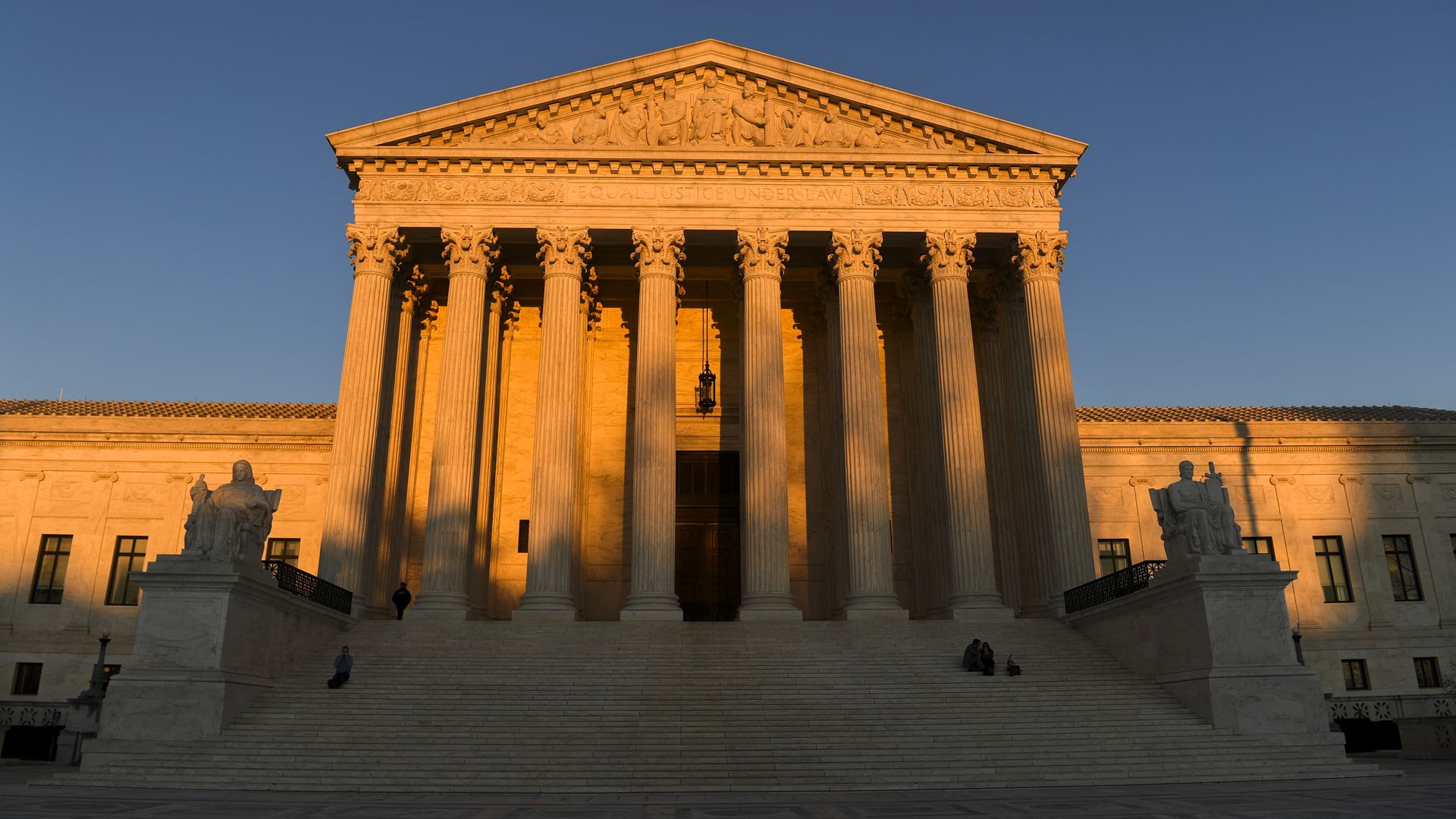Jun 15, 2020 - Politics & Policy
Supreme Court rules that workers cannot be fired for being gay or transgender

The Supreme Court ruled Monday that employers cannot fire employees based on their sexual orientation or gender identity under Title VII of the Civil Rights Act of 1964.
Why it matters: The 6-3 opinion marks a huge win for LGBT rights in a court with a clear conservative tilt. It was authored by conservative justice Neil Gorsuch, who was joined by the court's more liberal and swing members.
- Title VII explicitly prohibits discrimination based on "race, color, religion, sex, or national origin," but it did not specifically name sexual orientation or gender identity as protected classes.
What they're saying: "An employer who fires an individual for being homosexual or transgender fires that person for traits or actions it would not have questioned in members of a different sex," Gorsuch wrote.
- "Sex plays a necessary and undisguisable role in the decision, exactly what Title VII forbids."
- "Those who adopted the Civil Rights Act might not have anticipated their work would lead to this particular result. ... But the limits of the drafters' imagination supply no reason to ignore the law's demands."
- "When the express terms of a statute give us one answer and extratextual considerations suggest another, it's no contest. Only the written word is law, and all persons are entitled to its benefit."
Read the ruling:
